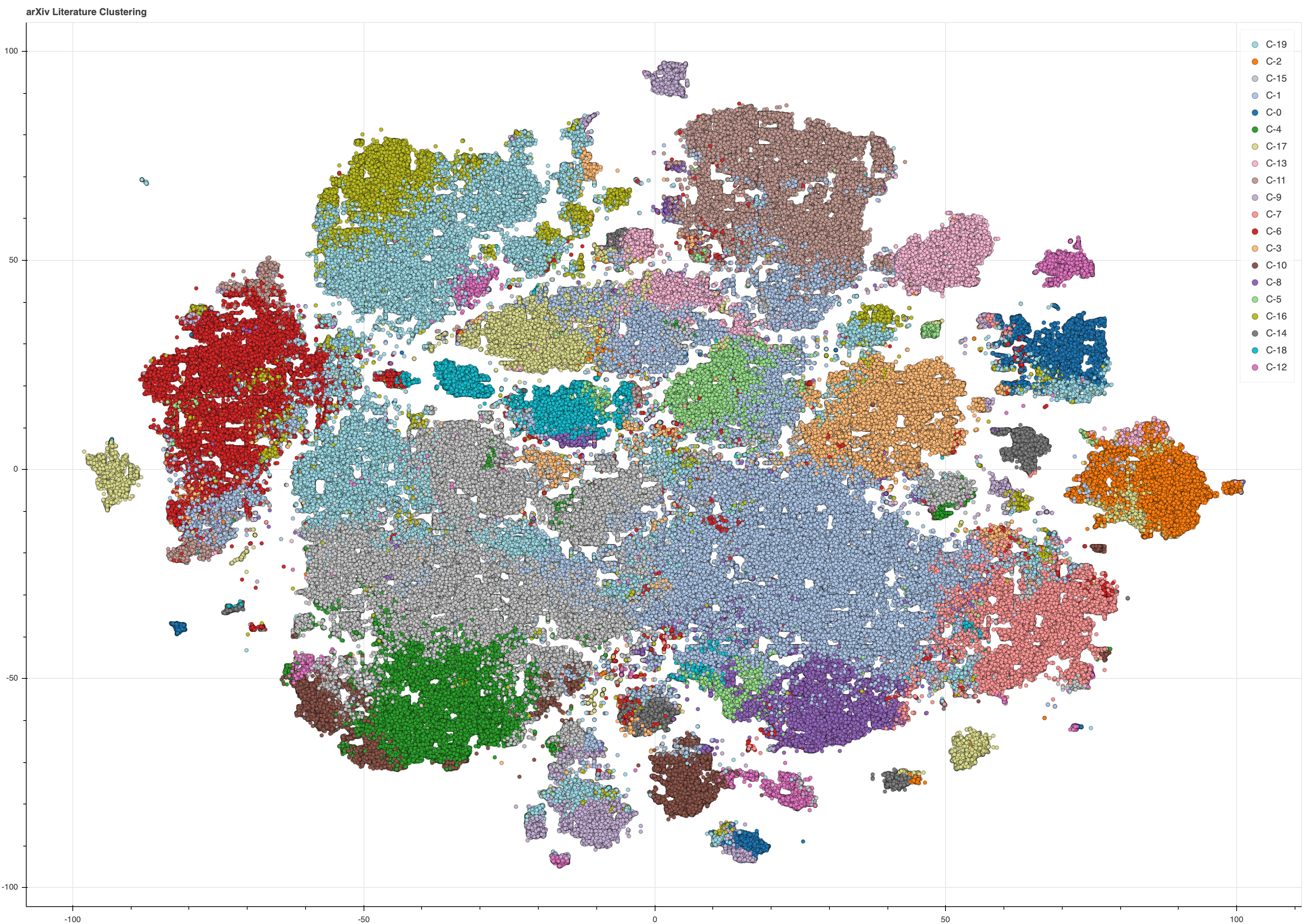Clustering of the 600,000 random subset of 1,747,307 literature hosted on arXiv. Papers are clustered using the technqiues described in COVID-19 Literature Clustering.
Dataset: arXiv Dataset | Kaggle
If you use arXiv Literature Clustering, please cite the original paper and the code:
@inproceedings{10.1145/3395027.3419591,
author = {Eren, Maksim Ekin and Solovyev, Nick and Raff, Edward and Nicholas, Charles and Johnson, Ben},
title = {COVID-19 Kaggle Literature Organization},
year = {2020},
isbn = {9781450380003},
publisher = {Association for Computing Machinery},
address = {New York, NY, USA},
url = {https://doi.org/10.1145/3395027.3419591},
doi = {10.1145/3395027.3419591},
abstract = {The world has faced the devastating outbreak of Severe Acute Respiratory Syndrome Coronavirus-2 (SARS-CoV-2), or COVID-19, in 2020. Research in the subject matter was fast-tracked to such a point that scientists were struggling to keep up with new findings. With this increase in the scientific literature, there arose a need for organizing those documents. We describe an approach to organize and visualize the scientific literature on or related to COVID-19 using machine learning techniques so that papers on similar topics are grouped together. By doing so, the navigation of topics and related papers is simplified. We implemented this approach using the widely recognized CORD-19 dataset to present a publicly available proof of concept.},
booktitle = {Proceedings of the ACM Symposium on Document Engineering 2020},
articleno = {15},
numpages = {4},
keywords = {clustering, document visualization, COVID-19, dimensionality reduction},
location = {Virtual Event, CA, USA}, series = {DocEng '20} }
